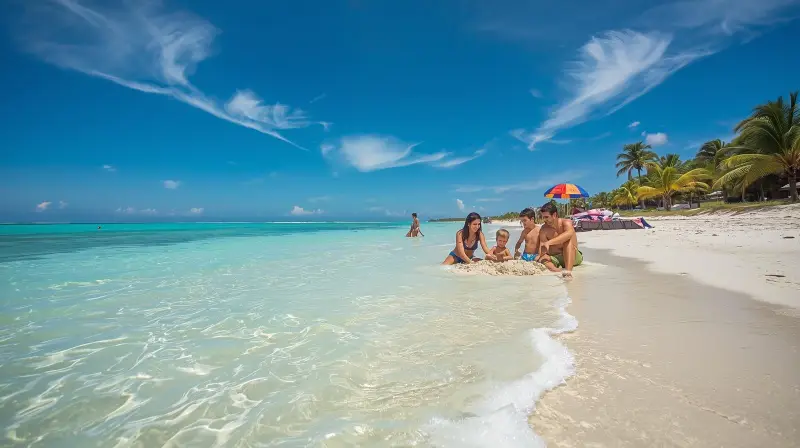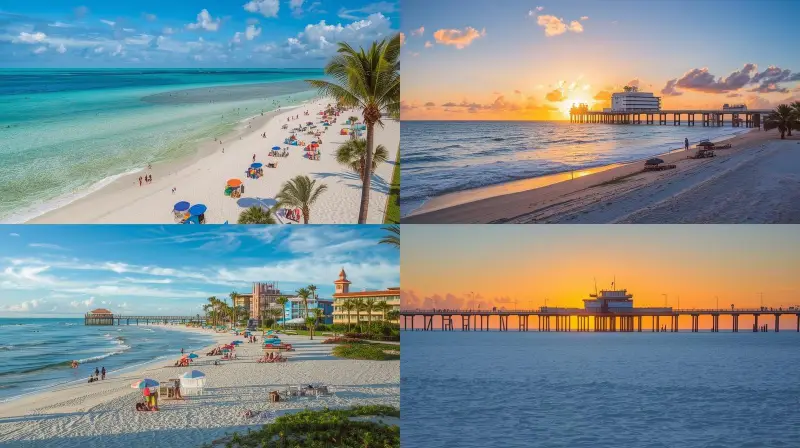Complete Guide to Scuba Certification in Florida and the Great Lakes

Table of Contents
ToggleImagine gliding through vibrant coral reefs in Florida or uncovering centuries-old shipwrecks in the clear waters of the Great Lakes. Sounds exciting, right? If you are always drawn by the beautiful underwater world and want to explore it, scuba diving is the perfect way to do it. From exotic marine life to mysterious shipwrecks and hidden treasures, Scuba Diving uncovers the hidden wonders beneath the water. It opens the portal to exciting underwater adventures, transporting you to an entirely new world. However, Scuba diving requires some important skills and knowledge which let you do the adventure comfortably and securely.
If you want to do scuba diving in Florida and the Great Lakes, you have to become scuba certified. Scuba Certification is a simple yet important course where you learn everything about scuba diving. From theoretical knowledge to actual practice in the water, these scuba certification courses equip you with the necessary skills. In this blog, we will share a complete guide on scuba certification in Florida and Great Water Lakes. From choosing the right certification to some important skills, this guide will help you safely explore the underwater world.
Why is getting Scuba Certified Important?
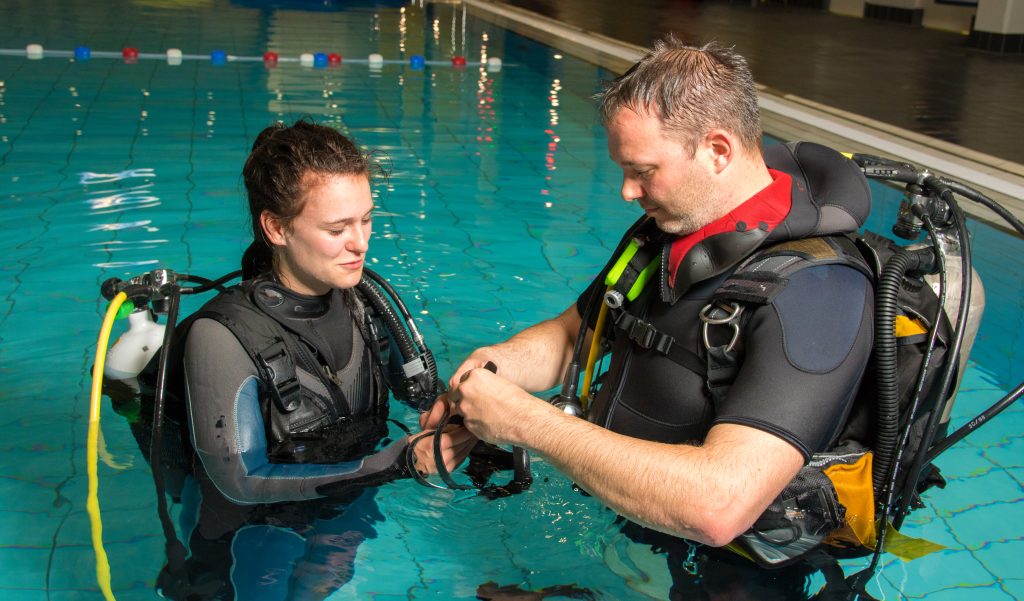
Before starting Scuba certification courses, it’s important to understand why getting certified is necessary. Scuba certification not only ensures your safety underwater but also equips you with the skills to explore marine ecosystems in a better manner. Certification from recognized agencies like PADI or NAUI is often required for renting equipment and diving. Here are the key reasons to get Scuba certified:
Safety First: Scuba diving has some risks, such as potential equipment failure, changes in pressure, panic situations, underwater emergencies, etc. The certification course teaches you to handle these situations calmly and follow safe diving practices. Doing this course helps you reduce the risk of such accidents, which increases your confidence underwater.
Skill Development: Scuba diving is much more difficult than other adventure activities. It requires essential skills such as understanding dive tables, equalizing pressure, controlling buoyancy, and equalization. A certification course equips you with all the necessary skills and helps you manage your dive efficiently and calmly.
Explore More Areas: The underwater world is filled with exotic creatures, coral reefs, mysterious shipwrecks, hidden treasures, etc. A certification course teaches you important skills and infuses the confidence to explore the underwater completely. With this, you can get the most out of your underwater adventure.
Access to More Dive Sites: A certification allows you to dive in various parts of the world, especially remote and professional diving sites. Whether you are exploring wrecks or reefs or traveling to a tropical destination, having a certificate opens the door to various diving spots.
Complete Enjoyment: Panicking underwater is one of the biggest problems with untrained divers. However, taking a certification in Florida or Great Lakes helps you gain full confidence in your abilities and reduce stress. You can stay calm and relaxed and focus on enjoying the beauty of the underwater world.
Types of Scuba Certification Courses in Florida and the Great Lakes
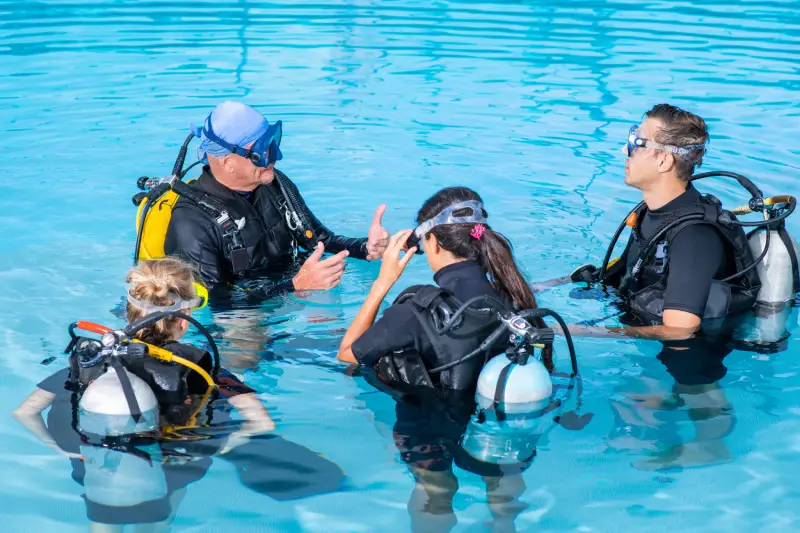
Discover Scuba Diving
DSD, or Discover scuba diving, is one of the most common and basic courses for those who want to try scuba diving without committing to a full course. This certification course allows you to learn the basic principles and safety guidelines of scuba diving from a trained instructor. Along with that, you will get a chance to dive in the pool or confined water body and practically apply the skills. Once you are comfortable with everything, your instructor can take you to real open water to experience the thrill of scuba diving. If you like the course and want to learn more, you can continue with the open-water scuba diving course.
Open Water Scuba Diving
Open water scuba diving is the best and most popular scuba certification in Florida and the Great Lakes. This is an entry-level course that certifies you to dive to a maximum depth of 1 meter (60 feet) with a buddy or trainer. This course teaches you how to dive safely and comfortably in tropical reefs, lakes, oceans, and rivers. The course includes a combination of classroom sessions, confined water training, and open-water dives. The theory classes cover everything, such as equipment use, dive planning, map reading, and safety. After that, it has confined water planning and 4-5 open water dives. You will get a chance to dive into the deep waters of Florida and the Great Lakes and explore the magical underwater world.
Advanced Open Water Course
The advanced open water course is one step above the basic open water scuba certification, which allows diving to 100 feet (30 meters). This course is designed to enhance your skills and confidence by diving deeper and exploring advanced and specialized diving. This includes night dive, deep dive, search and recovery, boar dive, underwater navigation, wreck dive, peak buoyancy, and many more. The course consists of 3-hour theory sessions and 5 open water dives in the water bodies of Florida and the Great Lakes. You will learn the psychology of deep diving, managing air consumption, using a compass, navigation techniques, identifying risks, and many more. Along with that, based on the specialty diving type, you will learn the important skills related to that type, like diving in low or zero visibility conditions for night diving. To do this course, the basic requirement is Open Water Diver certification.
Technical Diver Training
Technical diving is an advanced form of scuba diving that goes beyond the recreational limits of standard scuba training. This course is for trained divers looking to expand into deep diving, cave diving, challenging environments, and wreck penetration. From using special equipment like rebreathers and specialized gas mixtures (like nitrox, trimix, etc.) to staying longer and diving deeper, this course covers everything. You will learn about gas mixtures, dive tables, dive planning with nitrox, and handling and using specialized gas mixtures.
Best Scuba Diving Organizations in Florida and the Great Lakes
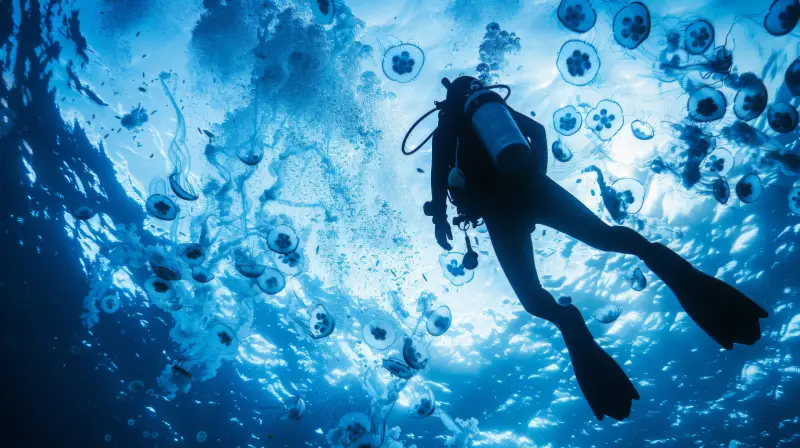
To get the best scuba certification, it’s important to choose the right organization with trained instructors and a positive track record. In Florida and the Great Lakes, there are 3 main globally recognized organizations for scuba certification.
PADI (Professional Association of Diving Instructors)
PADI (Professional Association of Diving Instructors) is the world’s largest and most recognized scuba diving certification organization. Founded in 1966, it is a globally recognized organization offering a wide range of scuba certification courses for beginners to advanced levels. There are over 6,600 PADI dive centers and resorts in more than 186 countries. With top-level diver training, safety, education, and practical sessions, it has set global standards for scuba diving. The extensive range of courses and online material makes it one of the most preferred choices for learning scuba diving. Its diver certifications include:
Beginner: Discover Scuba Diving and PADI Open Water Diver (entry-level certification).
Advanced: Advanced Open Water Diver, Rescue Diver.
Specialty Courses: Enriched Air (Nitrox), Wreck Diving, Deep Diving, Night Diving, and more.
Professional: Divemaster, Instructor Development Course (IDC).
The PADI centers located in Florida and The Great Lakes are:
Florida: Rainbow Reef Dive Center in Key Largo and the PADI Dive Center at Aquatic Ventures in South Florida.
Great Lakes: Great Lakes Divers, Huron Scuba, Snorkel & Adventure Travel Inc. in Michigan.
NAUI (The National Association of Underwater Instructors)
NAUI (National Association of Underwater Instructors) is one of the world’s oldest and globally recognized scuba diving certification organizations. Established in 1959, it provides instructor-driven training with a strong emphasis on safety, knowledge, and practical experiences. The courses offer high flexibility to tailor training to students’ specific needs, offering a more personalized experience. They teach and demonstrate how to deal with real-world challenges during diving to ensure that divers are prepared for everything. Its diver certifications include:
- Beginner: Scuba Diver (equivalent to PADI Open Water Diver).
- Advanced: Advanced Scuba Diver, Master Scuba Diver, Rescue Scuba Diver.
- Specialty Courses: Wreck Diving, Night Diving, Underwater Photography, and more.
- Professional: Assistant Instructor, Divemaster, Instructor Certification.
The NAUI centers located in Florida and The Great Lakes are:
Florida: DiveTech Scuba and Aquatic Explorers.
Great Lakes: Rec & Tec Scuba in Michigan.
SSI (Scuba Schools International)
SSI (Scuba Schools International) is one of the leading and most preferred scuba diving certification organizations worldwide. Established in 1970, it offers a range of scuba diving certifications from beginner to advanced levels. Their innovative approach to diver education is a combination of high-quality equipment and a modular learning system. Their courses cover all aspects of scuba diving, including gear usage, emergency procedures, navigation, and more. It even provides free digital course materials through its MySSI app, allowing you to study theory online and track certifications. The diver courses include:
Beginner: Open Water Diver (entry-level certification).
Advanced: Advanced Adventurer, Specialty Diver, and Stress & Rescue.
Specialty Courses: Enriched Air Nitrox, Deep Diving, Wreck Diving, Underwater Photography, and more.
Professional: Dive Guide, Divemaster, Instructor Training Course (ITC).
The SSI centers located in Florida and The Great Lakes are:
Florida: Ocean Divers and Jupiter Dive Center
Great Lakes: Shipwreck Adventures
What are the Basic Skills you learn in Scuba Certifications?
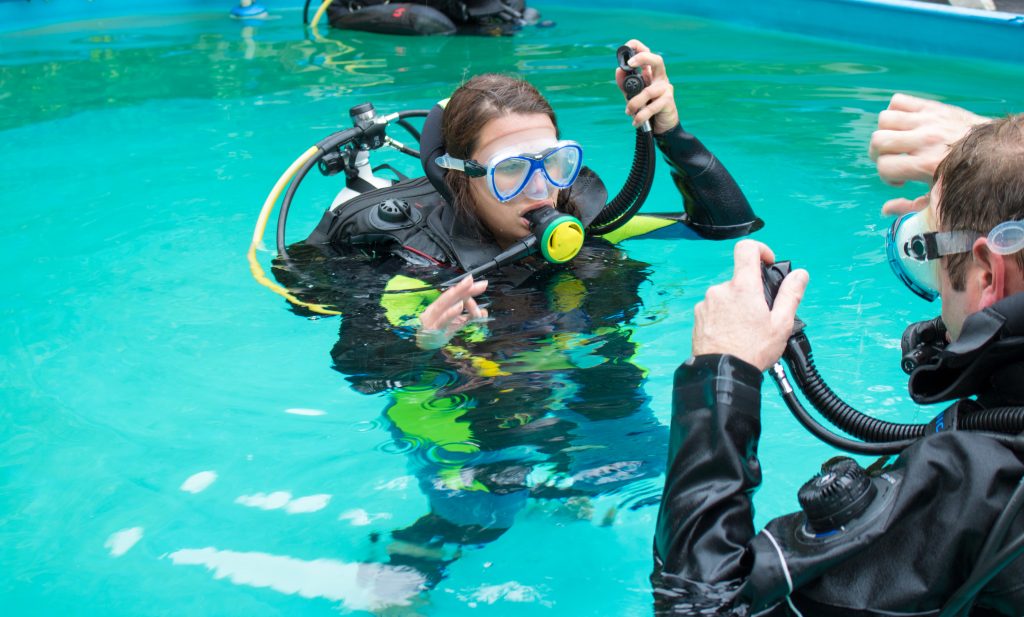
Equipment Setup and Inspection: This includes setting up, checking, and wearing the equipment for scuba diving, including the buoyancy control device (BCD), regulator, dive computer, air tank, etc.
Entry Techniques: Diving in the water is a technique that is important to know to avoid injury. The courses teach basic entry techniques, such as giant stride, backward roll, shore entry techniques, etc., to ensure safe entry.
Buoyancy Control: Neutral buoyancy is crucial for maintaining control and energy underwater. Scuba certification courses help you learn to adjust buoyancy at different levels using your BCD and breathing techniques.
Regulator and Mask Skills: This involves learning how to remove and replace your regulator while underwater, as well as retrieving a regulator in case it is knocked out. For mask clearing, you will learn controlled exhaling techniques to remove and clean it.
Breathing Techniques: You will learn how to breathe slowly and deeply to store air, breathe calmly, and maintain a relaxed state. It also teaches the importance of never holding your breath, as it can lead to lung overexpansion injuries.
Equalization: To prevent discomfort or injury due to pressure changes, you will learn to practice equalizing the pressure in ears and sinuses as you go down. This involves techniques like pinching the nose and blowing gently.
Underwater Navigation: It is one of the most important skills for any scuba diver to find their way underwater. The course teaches you to use a compass and natural landmarks to navigate underwater and return to the starting point.
Emergency Procedures: In case of emergencies, you need to help yourself as well as your buddy partner. The course teaches air-sharing techniques, controlled emergency swimming ascent (CESA), and more on handling such unexpected situations.
Hand Signals: It’s important to communicate with your buddy partner while underwater, but speaking is not possible. Therefore, you will learn underwater communication signals like OK, low on air, stop, ascend, wait, etc., to ensure clear communication.
Open Water Scuba Diving Course – The Best Gateway for Beginners to Underwater World
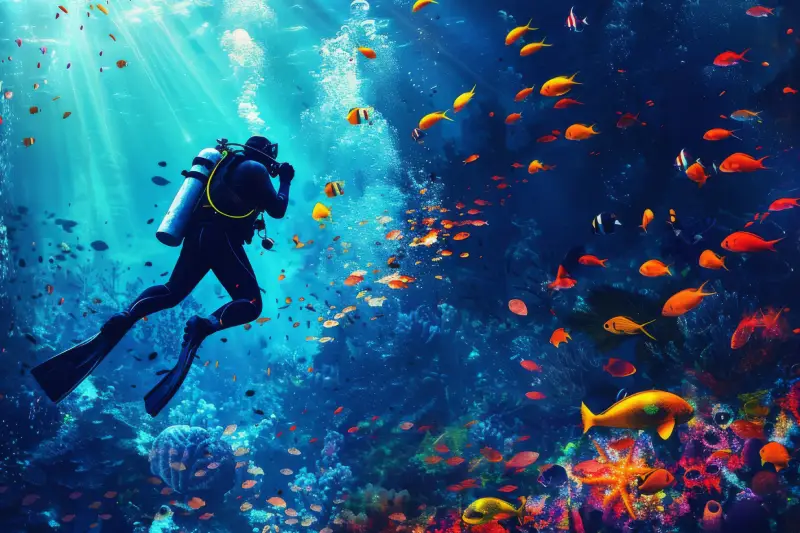
We have discussed almost everything about Scuba certifications, but the question is which course is best for scuba diving. If you are new to the world of scuba diving, then an open water scuba diving course from any PADI center is the best option. It is the world’s most popular and globally recognized scuba diving course, especially for beginners with no prior experience. From basic principles, breathing techniques, and sign language to buoyancy control, equalization, etc., this course covers it all. Its certification allows you to dive to a depth of 60 feet (18 meters).
The course has 3 parts, which are completed in a duration of 3 – 4 days on average. In these 3-4 days, you will get a classroom, confined water, and open water training to do your first scuba dive. Have a look at all 3 of them in brief:
Classroom
This involves theoretical knowledge development, which covers basic principles of scuba diving. It includes safety procedures, sign language, dive planning, navigation, equipment selection and checking, etc. Theoretical knowledge can be taken in the classroom, and the e-learning app can be used from the comfort of your home.
Confined Water Dives
Once you complete theory classes, you have to apply them in practical sessions. In this, you will be taken to a confined water body like a pool to practice scuba diving under the trainer’s guidance. You will learn to use scuba equipment and practice necessary skills like regulator recovery, buoyancy control, breathing techniques, etc.
Open Water Dives
As soon as you master skills in confined water, you will be taken for open water dives. In this, you’ll perform 4 open water dives in a big water body like a lake, river, sea, or even ocean. You will have to apply all the theoretical knowledge and practical skills you learned in confined water dives. This part also tells you how to navigate and interact with exotic marine life.
Conclusion
Scuba diving is one of the most thrilling and adventurous recreational activities that allows you to witness the beautiful underwater world. To perform scuba diving safely and comfortably, you are required to learn some important skills and practice scuba diving with a trainer. Scuba Certification in Florida and the Great Lakes is the best way to complete these requirements before going for a deep-water dive. We have discussed the types of scuba certifications as well as the best organizations to do this course. You can choose anyone from PADI, NUAI, and SSI based on your budget, requirements, and preferences. We have also discussed the important skills that you will learn in your scuba certification course to ensure a safe and enjoyable diving experience. So, what are you waiting for? If scuba diving is on your bucket list, enroll for your preferred course and explore the magical underwater world safely.
Author
Book your fondest memory here
Popular Posts
Best Family-Friendly Beaches in Florida
With its pristine beaches and warm waters, Florida is a…
Best Beaches in Florida: From Clearwater to South Beach
Florida is a beach lover’s paradise, and that’s no exaggeration.…
Best Places to Visit in Florida During Winter
Winter is the perfect time to step away from the…
Categories
- Best Places (25)
- Destinations (26)
- Experiences (21)
- Photography (1)
- Travel (48)
- Travel Products (7)
- Trip Style (8)
Search With Tags
Join Our Newsletter
Get Your Daily
Dose
Of Travel Inspiration
"*" indicates required fields
